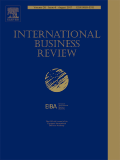
Does Country Context Distance Determine Subsidiary Decision-making Autonomy? Theory and Evidence from European Transition Economies
We studied an underrepresented area in the international business (IB) literature: the effect of country context distance on the distribution of decision-making autonomy across headquarters and foreign affiliates. Foreign affiliates directly contribute to the competitive advantages of multinational enterprises, highlighting the importance of such intra-firm collaboration. The division of decision-making autonomy is a core issue in the management of headquarters–subsidiary relationships. The main contribution of our paper is that we confront two valid theoretical frameworks – business network theory and agency theory – that offer contradictory hypotheses with respect to the division of decision-making autonomy. Our study is among the first to examine this dilemma with a unique dataset from five Central and Eastern European transition countries. The empirical results provide convincing support for our approach to the study of subsidiary decision-making autonomy.





